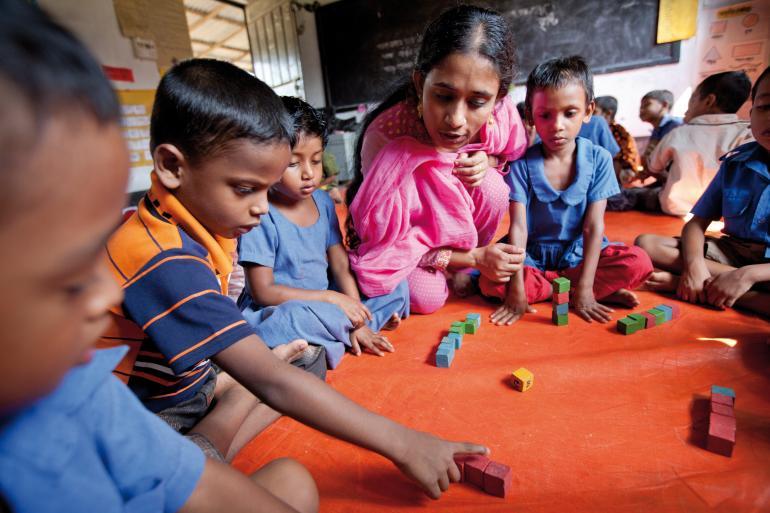Making sure all educational planning is crisis-sensitive
IIEP supports educational planners and policy-makers in mitigating the impact of crises and building resilience in the face of future crises. Such planning addresses inequities and exclusions in education, enhancing leadership of crisis responses, fostering consultation and communication, and improving risk management capacities.
During the last biennium, IIEP’s work in this area included technical cooperation, training, as well as research and advocacy. With COVID-19 hitting education hard, IIEP supported countries with response plans and risk management strategies, as well guidance on how to harmonize data collection processes between humanitarian and development actors. As part of this, 51 participants from 25 countries attended the specialized course on using data and information for crisis-sensitive planning, developed jointly with NORRAG.
In Latin America, the virtual course on crisis sensitive educational planning involved 79 participants from 23 countries, and was later contextualized and implemented for public officials from Costa Rica. To support advocacy efforts, the Education4Resilience website –in collaboration with the Education Above All Foundation– was relaunched on International Peace Day 2021 as an online platform featuring guidelines and resources on how to protect education, no matter where and when.
The new Education4Resilience platform offers a wealth of guidance and some 700 resources on how to prepare the sector to respond to emergencies, protect learning for all, and ultimately unleash the power of education to help prevent further crises from arising.”
Enhancing ministry leadership

IIEP has been researching ministry of education leadership and engagement during emergencies in six countries, and is now working to enhance how ministries lead during times of crisis. Effective ministry leadership has shown that responses must be multi-faceted, ranging from short-term efforts that focus on safeguarding access to education while reaching the most vulnerable to forward-looking strategies anchored in national priorities and local solutions. Strong leadership can only flourish when humanitarian and development partners work together to contribute to sustainability and resilience.
Strong ministry of education leadership cannot be under-estimated as crises are constantly arising across the globe. Through our work in Jordan, Kenya, to Burkina Faso, we are seeing how high-level political will, investment in human resources, robust information systems, and more, are helping maintain learning during emergencies.”
Supporting countries with risk management
Many risks and hazards threaten educational continuity and quality worldwide. To help counter these threats, IIEP supports countries with risk management analysis and policies. In Guyana, IIEP recently assisted the Ministry of Education with the creation of its first national risk management policy. While this support came on the heels of the COVID-19 pandemic, the strategy addresses the range of dangers education in Guyana contends with –floods, fire, oil spills, drought, and pollution. As part of this mission, Ministry of Education officials created programmes for risk management and structured policy options around access, quality, and management. IIEP also supported Guyana with guidelines for safe school re-opening, tools for developing school-level contingency plans, and methods to analyse COVID-19’s impact on the education sector.
Resilience is important for us because it can protect our most prized possession –human capital– and it facilitates the continuity of learning in times of crisis.”
